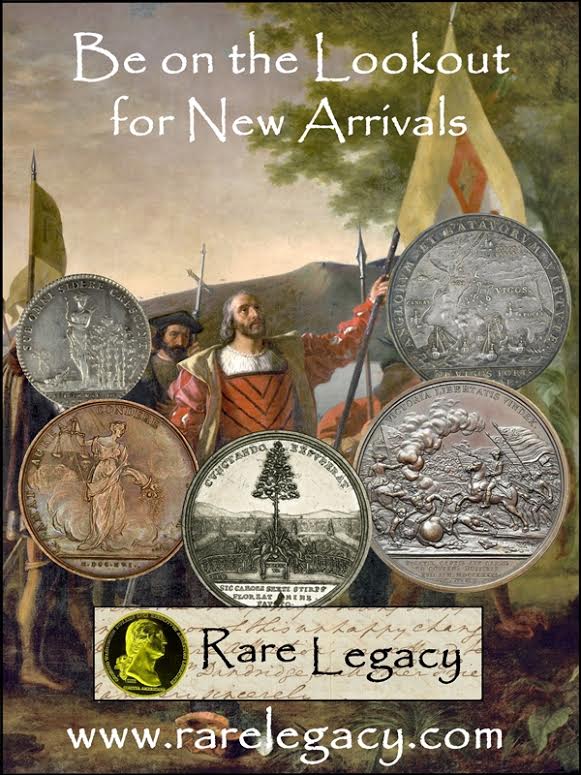
PREV ARTICLE
NEXT ARTICLE
FULL ISSUE
PREV FULL ISSUE
VOCABULARY TERMS: CONSERVATION, ANTITARNISH PAPERDick Johnson submitted these entries from his Encyclopedia of Coin and Medal Terminology. Thanks! -Editor
While major museums practice conservation of their numismatic specimens, the average collector and numismatist should be aware of this activity. Using antitarnish tissue is one method of conservation anyone can employ. Both entries are given this week. Since chemicals are used for restoration, this is a field for experts. Conservation. Doing everything possible to protect numismatic and medallic specimens from damage, deterioration and destruction; preserving for future study. Die-struck metal objects are one of the easiest to conserve. They do not have the problems of other artifacts, as paper, textile or organic objects, for example. Coins and medals are intended to be permanent. Being struck in metal fulfills this intent. They do not break or crumble; they do not need the controlled conditions of temperature or humidity that other objects require. They can endure and survive extreme cold, except tin under certain circumstances, and heat up to just below their melting point. They are virtually impervious to humidity (except, of course, iron objects which may rust). Other environmental conditions are easy to control, with obvious knowledge (as chemical contact with corrosive compounds, acid for example). Coinage metals of gold, silver bronze, copper nickel, nickel and zinc are well known to conservationists. They work with restoration, the removal of corrosion and other adherents, then prevention, with waxes and lacquers. It requires an extensive knowledge of metallurgy and chemistry. It is not to be conducted by amateur who can easily damage a numismatic item. Having established the ease of environmental factors to conserve coins and medals, they are best preserved for storage and easy viewing in trays. The most valuable items can be stored in shallow boxes (which have the advantage of being able to be captioned - data identifying the item applied to the box), and these can be lined with thin cotton batting if desired. Trays can be lined with cloth that is sulfur-free, or tissue that is ANTI TARNISH PAPER. The industry of collectors' supplies have created products in the 20th century of further protection including albums, plastic holders, capsules, envelopes and such. The industry of encapsulating coins and medals "in plastic slabs" grew popular in the late 20th century furthers conservation. The greatest enemy of coins and medals are being dropped or having sharp objects dropped on them creating nicks and dents. To overcome this is the care in handling by everyone in contact with them
must exercise. Anti tarnish Paper. Paper made without sulfur being used in its manufacture. Ranging from tissue to Bristol board in thickness and weight, it is used to prevent
tarnish in bronze or silver coins which come in contact with it (medals before they are lacquered, or any numismatic item with a COIN FINISH). Coins may be wrapped in anti tarnish tissue for long-term
storage. It is also used to line numismatic storage boxes and trays "anti tarnish cloth" is also available for this same purpose. TOTE BOXES are lined with anti tarnish paper for blanks
and struck pieces of proof coinage. Looking for the meaning of a numismatic word, or the description of a term? Try the Newman Numismatic Portal's Numismatic Dictionary at: https://nnp.wustl.edu/library/dictionary  Wayne Homren, Editor The Numismatic Bibliomania Society is a non-profit organization promoting numismatic literature. See our web site at coinbooks.org. To submit items for publication in The E-Sylum, write to the Editor at this address: whomren@gmail.com To subscribe go to: https://my.binhost.com/lists/listinfo/esylum All Rights Reserved. NBS Home Page Contact the NBS webmaster 
|